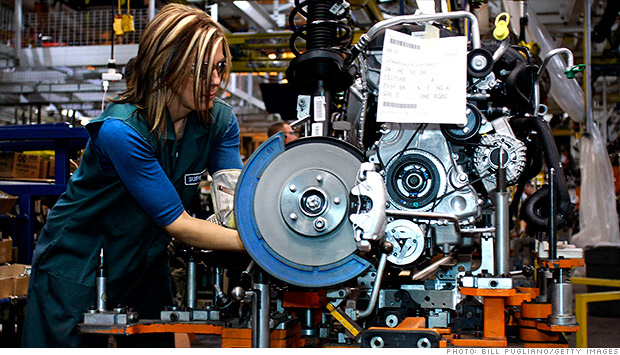 The EEF (Engineering Employers Federation) is predicting big job losses in UK manufacturing during 2016 – despite the success of the UK automotive, aerospace and pharma sectors.
The EEF (Engineering Employers Federation) is predicting big job losses in UK manufacturing during 2016 – despite the success of the UK automotive, aerospace and pharma sectors.
Their latest report says British manufacturers will shed tens of thousands of jobs next year as they battle a tough export market. The predicted job cuts in the UK steel sector and a continuing drop in demand from the North Sea oil industry – with the price of oil not expcted to reach $50 a barrel for sometime – are taking their toll.
Although the EEF says manufacturing may “shrug off” the 2015 recession only modest growth is expected in in 2016 with a potential sharp downtown in the Chinese economy – which may effect other economies.
The report is another blow to the Government. The re-balancing of the economy has not happened – the UK economy still floats on a bed of personal debt and credit and an over reliance on the service sector.
The lack of an industrial strategy to help companies in engineeering and the supply chain and the failure of the Government to react quickly enough to the steel crisis – eventually being forced to step in to help the beleaugred sector has created uncertainty among manufacturers.
Osborne’s continued boasts of a ‘recovery’ are looking increasingly threadbare. The ‘March of The Makers” stalled and never got going and the ‘Northern Powerhouse’ is under-water.
EEF says the main drivers behind overall manufacturing growth of 0.8% in 2016, are the automotive, pharma and aerospace sectors.
“Some of the headwinds have been a consistent theme over 2015 – the collapse in oil and gas activity, weakness in key export markets, and strong sterling. Others, like disappointing construction activity and the breakdown in the steel industry, have piled on the pain since the second quarter of 2015,” said EEF’s chief economist, Lee Hopley, in the report.
“It’s not all doom and gloom however, with the resilience of the transport sectors and the rejuvenation of the pharmaceuticals industry providing reasons for cheer in UK manufacturing.”
The Office for National Statistics pared back its estimate for gross domestic product in July to September – and said activity had also been weaker in the previous three months. Household spending was the main driver of growth while the manufacturing sector contracted and a weak trade performance also dragged on growth.
